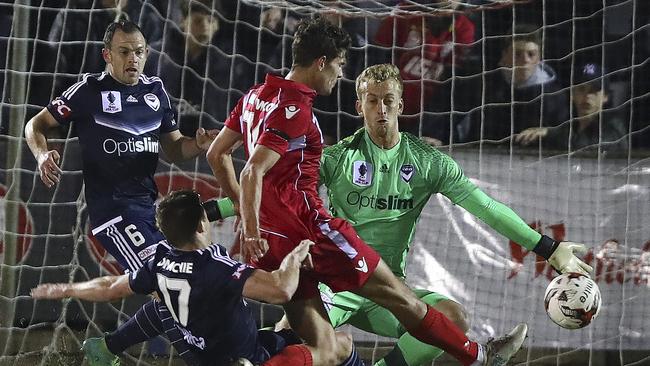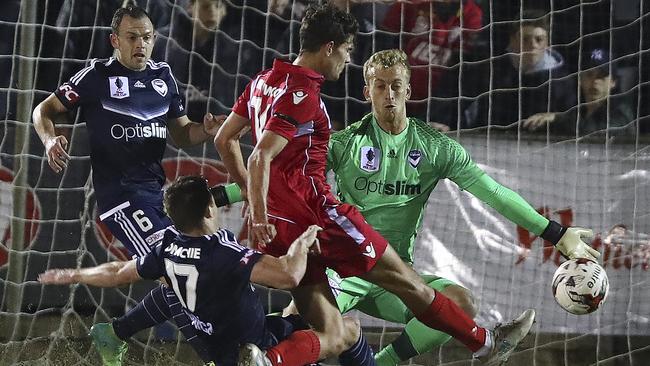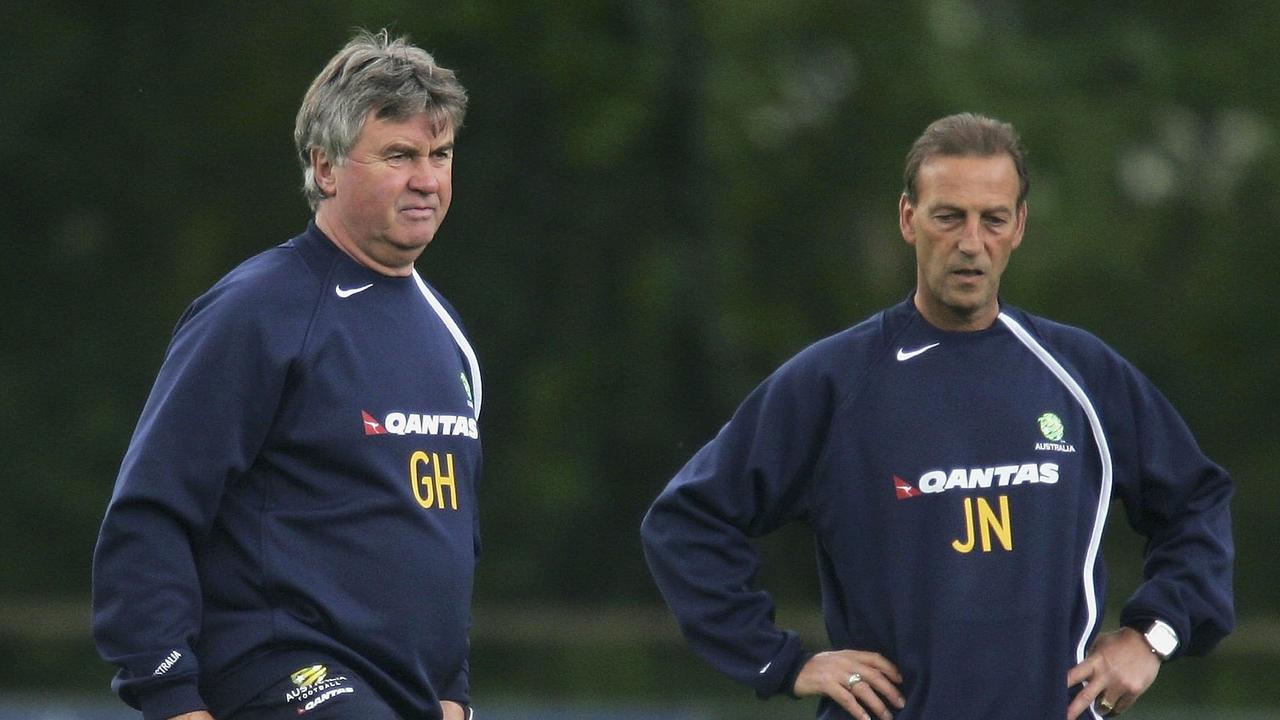PFA study: Kids need more minutes if we want to compete globally
MORE kids than ever are playing soccer yet new research reveals that professional pathways are more limited than ever.

Football
Don't miss out on the headlines from Football. Followed categories will be added to My News.
MORE kids than ever are playing soccer yet the bottleneck means plunging minutes for our best youngsters, with Australia’s top talents clocking up the least professional match minutes since 2006.
Australians’ minutes in the world’s “Big 5” leagues is at an lowest, while Asia is a graveyard for players with European ambitions, the players union’s “Pathway Study” study has found.
Tracking the professional minute of every Australian from 2002-2016, the study found provides valuable insights into the 204 overseas and the 190-odd locals contracted players.
Minutes for homegrown under 20 players have been slashed by almost a third from 2010-12, when they peaked at 25,282.
SOCCEROOS: Aussies must produce ‘hamburger with the lot’
In 2015-16, U20 kids played 8824 minutes — a total of 100 games. In both cases, most minutes were domestic.
The declining minutes for young players coincides with Australia’s barren youth results, failing to qualify for eight of the last 14 youth world cups.

The Professional Footballers Australia (PFA) chief executive John Didulica said Australia’s future prospects were linked to expanding the game’s footprint.
“The quality of Australian careers and the success of Australian footballers at the elite level is inherently linked to our ongoing international competitiveness,” Didulica said.
“The data supports the view that we are falling behind where we once were (so) we need to redefine our approach to the complex area of talent development.
“This discussion needs to go well beyond a debate on methodology or coach education and equally focus on the cultural, social, governance and regulatory dynamics that act as barriers to Australia producing a (Luka) Modric or a (Luis) Suarez.
“(We do) not have the luxury of isolation. (Our) players and teams are tested on the global stage every weekend. We expect to be able to compete with and beat the very best; so we need to build a system that meets this challenge.’’
The PFA research covered 626 Australians and found that:
— Total and local minutes played by locals peaked in 2010-11;
— Minutes played in “The Big 5” leagues peaked between 2002-08;
— China has been the most prolific Asian market, with a third (83,088) of total minutes (210,098) played there;
— In 2016, the eight players in China averaged just 1201 minutes;
— Of the 71 Aussies in Asia up until 2016, only four moved directly to Europe and two to first division clubs, while 40 came to the A-League;
— Players who racked up more than 2000 A-League minutes (22 full games) were more likely to establish themselves abroad than those who played less.


